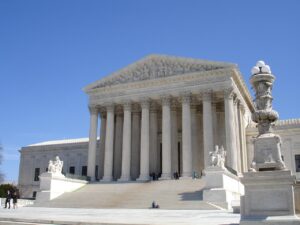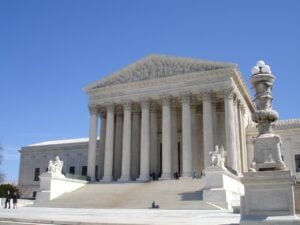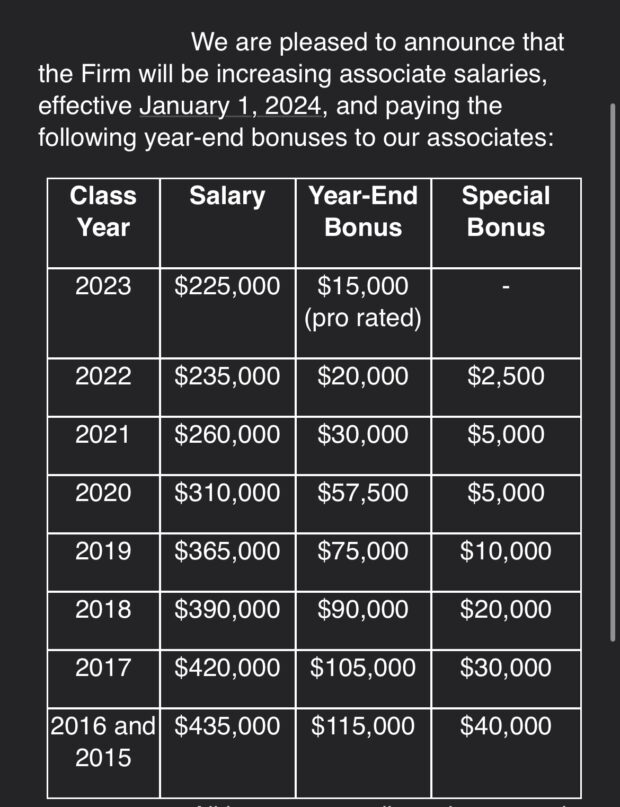
(Photo
by
Jabin
Botsford/The
Washington
Post
via
Getty
Images)
Prosecutors
in
Trump’s
DC
election
interference
case
submitted
notice
yesterday
of
their
intent
to
present
Rule
404(b)
evidence
establishing
that
the
former
president
“sowed
mistrust
in
the
results
of
the
presidential
election”
as
part
of
a
“common
plan
to
refuse
to
commit
to
a
peaceful
transition
of
power.”
The
document
is
both
spicy,
in
what
it
seeks
to
admit,
and
juicy,
in
what
it
reveals
about
Trump’s
co-conspirators.
The
special
counsel
points
to
Trump’s
baseless
claims
of
fraud
in
the
2016
and
2012
elections,
along
with
his
refusal
to
commit
to
a
peaceful
transfer
of
power,
as
evidence
that
he
intended
to
obstruct
Congress
in
2020.
The
defendant’s
consistent
refusal
to
commit
to
a
peaceful
transition
of
power,
dating
back
to
the
2016
presidential
campaign,
is
admissible
evidence
of
his
plan
to
undermine
the
integrity
of
the
presidential
transition
process
when
faced
with
the
possibility
of
an
election
result
that
he
would
not
like,
as
well
as
his
motive,
intent,
and
plan
to
interfere
with
the
implementation
of
an
election
result
with
which
he
was
not
satisfied.
Similarly,
the
government
will
seek
to
prove
that
Trump
used
the
riot
as
a
means
to
obstruct
Congress
by
pointing
to
his
long
game
of
footsie
with
the
Proud
Boys
—
“stand
back
and
stand
by”
—
and
his
ongoing
support
for
the
January
6
rioters,
including
his
promise
to
pardon
them.
They’re
also
going
to
subject
the
jurors
to
the
torture
of
listening
to
Trump
“sing”
along
with
the
“J6
Prison
Choir.”
But
the
document
has
some
interesting
new
information
about
the
Trump
campaign’s
effort
to
foment
a
riot
to
disrupt
the
vote
counting
in
Detroit.
On
November
4,
2020,
the
Campaign
Employee
exchanged
a
series
of
text
messages
with
an
attorney
supporting
the
Campaign’s
election
day
operations
at
the
TCF
Center
in
Detroit,
where
votes
were
being
counted;
in
the
messages,
the
Campaign
Employee
encouraged
rioting
and
other
methods
of
obstruction
when
he
learned
that
the
vote
count
was
trending
in
favor
of
the
defendant’s
opponent.
Journalist
Marcy
Wheeler
suggests
that
the
campaign
employee
may
be
Mike
Roman,
Trump’s
Director
of
Election
Day
Operations.
Roman
tweeted
out
a
video
amplifying
false
claims
later
echoed
by
Trump
that
Republican
observers
were
excluded
wholesale
from
observing
the
vote
count
in
Detroit,
rather
than
prevented
from
overwhelming
the
civil
servants
doing
their
job.
Prosecutors
will
also
seek
to
bolster
their
claims
that
Trump
knew
he
was
pushing
false
claims
of
electoral
fraud
by
pointing
to
efforts
“to
retaliate
against
the
former
Chief
Counsel
to
the
Republican
National
Committee
(RNC)
for
publicly
refuting
the
defendant
and
Co-Conspirator
1’s
lies
about
election
fraud.”
That’s
an
apparent
reference
to
Rudy
Giuliani’s demand
that
RNC
Chair
Ronna
Romney
McDaniel
fire
lawyer
Justin
Riemer
after
he
pushed
back
against
false
claims
of
election
fraud.
Trump’s
lawyers
have
already
tried
and
failed
to
strike
all
mention
of
the
January
6
riot
as
inflammatory
and
prejudicial.
Presumably
they’ll
object
to
any
attempt
to
connect
their
client
to
an
election
night
riot
and
a
pack
of
domestic
terrorists
whose
leader
was
convicted
of
seditious
conspiracy.
Cue
the
performative
outrage
in
3
…
2
…
US
v.
Trump
[Docket
via
Court
Listener]
Liz
Dye lives
in
Baltimore
where
she
writes
the Law
and
Chaos substack
and
appears
on
the Opening
Arguments podcast.







 Chris
Chris
 Kathryn
Kathryn







